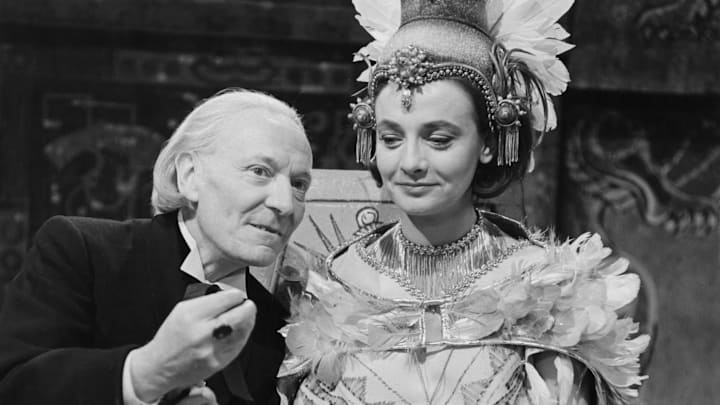When writing about which missing Doctor Who stories we'd love to see in full, a few examples that stood out - "Marco Polo", "The Crusade", and "The Massacre" - were serials that were pure historicals. This is a form of storytelling that we haven't seen in Doctor Who, at least not on television, in decades. But I'd still love to see pure historicals return to the series in some form.
While I enjoy all the monsters and the different worlds in Who, the historicals allowed for a break from all of those things and provided a different kind of storytelling. One free from any kind of science-fiction apart from the time travelers themselves, and quite often, that would be easily as exciting and entertaining as any story featuring "bug-eyed monsters" - if not more so.
From a drama perspective, these stories would explore the clash of cultures and views between the TARDIS crew and the people living in these historical periods. "The Aztecs", for example, sees Barbara desperately wanting to permanently change Aztec culture by ending human sacrifices.
Of course, none of the Aztecs want the sacrifices to end - not even the victims. It's too deeply ingrained in both their society and their beliefs, and this is something that the rest of the TARDIS crew recognizes. This very human conflict is just one example of how dramatic the historicals could be at their best.

Adventure and danger
There is one other reason why I enjoy the pure historicals - they often provide an excuse for the TARDIS team to get involved in thrilling adventures.
A good example of this is "The Romans". The story includes a lot of comedy, but it also sees Ian and Barbara captured as slaves. While Barbara is sent to Emperor Nero's court, Ian is put on a slave ship, becomes a gladiator, and even has one or two sword fights before finally rescuing Barbara.
These storylines of adventure and excitement still work well today, and it almost makes me wonder if it's enough to bring the pure historicals back to a new audience. Even with episodes that are just 50 minutes long, it could still be fun to see the Doctor and his companion in a historical setting where there are no monsters - just pure human conflict and adventure.

Why the historicals won't come back
Honestly though, as much as I'd love to see the pure historicals return, I also know that they're not likely to come back. The television series has come a long way since those early adventures, and the pure historicals were only a core template of the show for the first four seasons.
We've had many stories set in Earth's history since then, of course, and some of those have explored the setting extremely well. But even those stories made sure to include some kind of monster, at least.
When Doctor Who came back in 2005, it did so at a faster pace. And while the occasional episode was set in a historical period - such as "The Unquiet Dead" or "The Empty Child" - the monsters were still the main draw. And that's been true for almost all seasons since then.

The Chibnall era
Perhaps the closest we've had to pure historicals in the New Series - or at least the feeling of pure historicals - has been in Chris Chibnall's era as showrunner. "Rosa" didn't shy away from the horrific racism of the period, and the buildup to Rosa Parks's important choice was handled well.
Of course, the weakest aspect of the story was the time-traveling villain Krasko trying to change things. The story could've worked better without such a basic character. It could've been more compelling if one of the companions had accidentally changed history, even with the smallest action, and the TARDIS crew had to do everything they could to put it back on course.
A story that felt even closer to a historical was "Demons of the Punjab". The episode still had "monsters" in the form of the Thijarians, but this turned out to be a red herring, with the Thijarians being nothing more than observers of those about to die. It's honestly a refreshing twist that allowed plenty of focus on the human drama and conflict caused by the partition of India. Especially since this particular drama included themes of love and betrayal.
Beyond the TV series
Of course, the fact that each of these episodes had such clear sci-fi elements outside of the TARDIS crew highlight that, while we can have stories that are close to pure historicals in spirit, we're far from likely to having another pure historical on TV again. It's a shame, but it's also understandable.
It's also another reason why I love expanded media. Many books and audios have captured past Doctors' eras well, and that's definitely true of Hartnell's era. Stories like "The Witch Hunters" and "The Flames of Cadiz" do an excellent job of capturing what made those original historicals so successful, while naturally providing fresh new stories to enjoy. We might be long past the era of pure historical storytelling on television, but there are always great new stories to enjoy outside of that medium.
